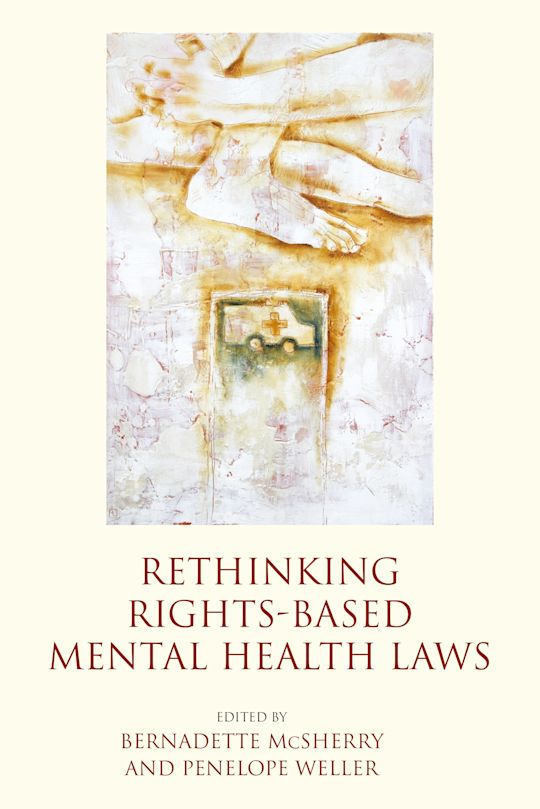Rethinking Rights-Based Mental Health Laws
Rethinking Rights-Based Mental Health Laws
Description
Mental health laws exist in many countries to regulate the involuntary detention and treatment of individuals with serious mental illnesses. 'Rights-based legalism' is a term used to describe mental health laws that refer to the rights of individuals with mental illnesses somewhere in their provisions. The advent of the United Nations Convention on the Rights of Persons with Disabilities makes it timely to rethink the way in which the rights of individuals to autonomy and liberty are balanced against state interests in protecting individuals from harm to self or others.
This collection addresses some of the current issues and problems arising from rights-based mental health laws.
The chapters have been grouped in five parts as follows:
- Historical Foundations
- The International Human Rights Framework and the United Nations Convention on the Rights of Persons with Disabilities
- Gaps Between Law and Practice
- Review Processes and the Role of Tribunals
- Access to Mental Health Services
Many of the chapters in this collection emphasise the importance of moving away from the limitations of a negative rights approach to mental health laws towards more positive rights of social participation. While the law may not always be the best way through which to alleviate social and personal predicaments, legislation is paramount for the functioning of the mental health system. The aim of this collection is to encourage the enactment of legal provisions governing treatment, detention and care that are workable and conform to international human rights documents.
Table of Contents
1 Rethinking Rights-Based Mental Health Laws Bernadette McSherry and Penelope Weller
PART 2 HISTORICAL FOUNDATIONS
2 Institutionalising the Community: The Codification of Clinical Authority and the Limits of Rights-Based
Approaches Philip Fennell
3 Lost in Translation: Human Rights and Mental Health Law Penelope Weller
4 The Fusion Proposal: A Next Step? Neil Rees
PART 3 THE INTERNATIONAL HUMAN RIGHTS FRAMEWORK AND THE UNITED NATIONS CONVENTION ON THE RIGHTS OF PERSONS WITH DISABILITIES
5 The Expressive, Educational and Proactive Roles of Human Rights: An Analysis of the United Nations Convention on the Rights of Persons with Disabilities Oliver Lewis
6 Involuntary Treatment Decisions: Using Negotiated Silence to Facilitate Change? Annegret Kämpf
7 Abolishing Mental Health Laws to Comply with the Convention on the Rights of Persons with Disabilities Tina Minkowitz
PART 4 GAPS BETWEEN LAWAND PRACTICE
8 Rights-Based Legalism: Some Thoughts from the Research Genevra Richardson
9 Extra-Legislative Factors in Involuntary Status Decision-Making Ian Freckelton
10 Civil Admission Following a Finding of Unfitness to Plead Jill Peay
PART 5 REVIEW PROCESSES AND THE ROLE OF TRIBUNALS
11 Involuntary Mental Health Treatment Laws: The 'Rights' and the Wrongs of Competing Models? Terry Carney
12 Reviews of Treatment Decisions: Legalism, Process and the Protection of Rights Mary Donnelly
13 Mental Health Law and Its Discontents: A Reappraisal of the Canadian Experience Joaquin Zuckerberg
14 Compulsory Outpatient Treatment and the Calculus of Human Rights John Dawson
PART 6 ACCESS TO MENTAL HEALTH SERVICES
15 Rights-Based Legalism and the Limits of Mental Health Law: The United States of America's Experience John Petrila
16 The Right of Access to Mental Health Care: Voluntary Treatment and the Role of the Law Bernadette McSherry
17 Thinking About the Rest of the World: Mental Health and Rights Outside the 'First World'Peter Bartlett
Product details
| Published | 16 Aug 2010 |
|---|---|
| Format | Ebook (PDF) |
| Edition | 1st |
| Extent | 464 |
| ISBN | 9781847315960 |
| Imprint | Hart Publishing |
| Publisher | Bloomsbury Publishing |
Reviews

ONLINE RESOURCES
Bloomsbury Collections
This book is available on Bloomsbury Collections where your library has access.





































